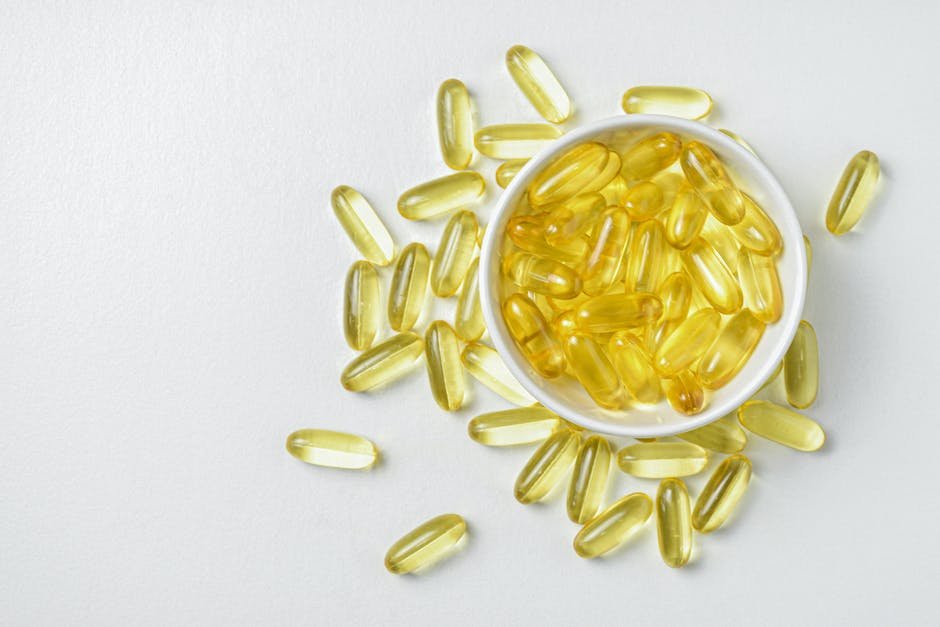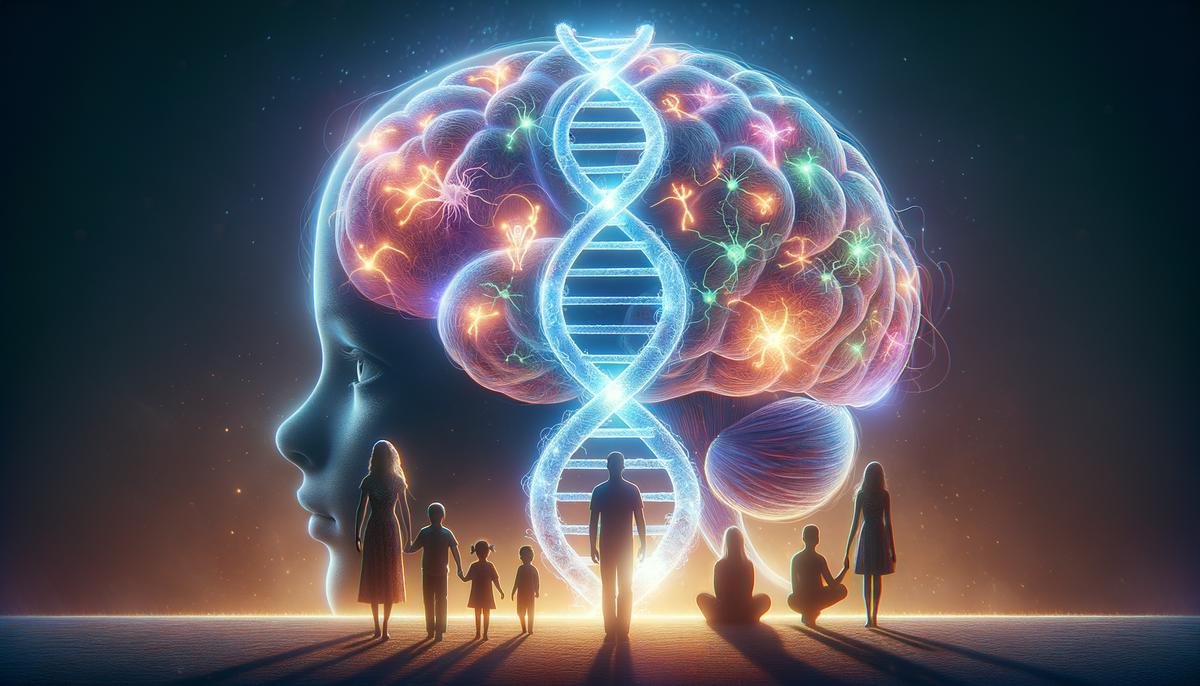
Autism Spectrum Disorder (ASD) and Vitamin D are topics that, when mentioned separately, are widely understood in general. ASD with its prevalence in our society is a familiar topic, with its diverse range of symptoms and types that it covers. Likewise, Vitamin D is known to be pivotal to our health, playing a key role in bone health and immune function. However, bringing these two seemingly disparate subjects together strikes an interesting chord. This article explores how these two areas might intersect and seeks to shed light on the possible role of Vitamin D in the context of Autism Spectrum Disorder.
Understanding Autism Spectrum Disorder
Unveiling Autism Spectrum Disorder: A Closer Look at Occurrence & Impact
There’s no denying the charm and unique individuality that kids bring into our lives. They remind us of our own innocence, laughter, and curiosity from years past. Every child is exceptional in their own way—this is one of the enchanting truths about parenthood. And today, we’re going to uncover a particularly special condition that affects many children—Autism Spectrum Disorder (ASD).
Autism Spectrum Disorder, for those who haven’t come across this term before, is indeed a spectrum — encompassing a wide range of conditions characterized by specific kinds of difficulties. These can involve social skills, repetitive behaviors, speech, and nonverbal communication. The term ‘spectrum’ is used to highlight the variations in challenges and strengths possessed by each person with autism.
Though it’s important not to overly stereotype or generalize, many autistic children show an intensive interest in particular topics, distinctive ways of learning and problem-solving, and at times, exceptional skills in music, art, or mathematics.
Now, speaking of prevalence, how common is Autism Spectrum Disorder, you might ask? Well, the rates have significantly increased over the years due to improved diagnostic methods and awareness. The Centers for Disease Control and Prevention (CDC) stats report that around 1 in 54 children is diagnosed with ASD, with a higher prevalence in boys than girls.
But remember, being diagnosed with Autism Spectrum Disorder is not an impediment—it’s just a different way of experiencing the world. These children offer a whole new perspective on life, filled with unique strengths and abilities to be acknowledged and celebrated.
Yes, raising a child on the spectrum might have its unique challenges, but it’s also filled with moments of discovery, joy, and rewarding triumphs. As parents, and as communities, the most supportive thing we can do is educate ourselves about Autism Spectrum Disorder, and foster understanding and acceptance.
By understanding and embracing the uniqueness in every child, we foster an inclusive and supportive environment that helps them thrive. Because, after all, every child deserves to feel accepted, loved, and empowered—no matter where they fall on the beautiful, complex spectrum of their individual journey.
Time to offer a big warm virtual hug to all amazing parents and caregivers on this incredible journey, who are creating a world of acceptance, inclusivity, and love. After all, isn’t that what being part of a community feels like—where everyone has a place, and every child, no superheroes or wizards needed, is just downright magical?

Photo by derekowensheart on Unsplash
The Role of Vitamin D in the Human Body
Unleashing the Power of Vitamin D for Overall Health and Well-being
As devoted caregivers and committed homemakers, it’s only natural that we want the best for our loved ones. A key component in the quest for their overall health is something that frequently flies under the radar: Vitamin D. This humble nutrient, casting a small shadow in the health spotlight, is actually pivotal for our overall health, impacting everything from bone strength to mood regulation.
Getting down to the basics, Vitamin D is not just a vitamin; it is also a prohormone. This means it supports the function of many other hormones in the body, setting up an integral part of our overall well-being. This incredibly versatile nutrient is best known for its pivotal role in bone health. It aids in the absorption of calcium and phosphorus, key building blocks for strong bones. Without adequate Vitamin D, conditions like osteoporosis and rickets become a real concern.
Besides, when we dive into the world of mental health, Vitamin D is playing its part quietly but effectively. Research links lower Vitamin D levels with mood disorders such as depression and anxiety. Our little sunshine vitamin influences the production of mood-enhancing neurotransmitters like serotonin, offering comforting warmth even on cold days drowning in the demands of parenting, work, and life.
Looking at our immune system, Vitamin D continues to extend its generosity by acting as a immuno-regulator. It keeps our immune system balanced, helping us to fend off infections, diseases and viruses. In recent times, the ongoing research suggests that Vitamin D plays a role in lowering the severity of illnesses, such as the novel Covid-19, reinforcing just how vital this vitamin is.
Now, let’s dive into the heart of health management: chronic diseases. According to various studies, Vitamin D deficiency is linked to a higher risk of many chronic conditions like heart disease, hypertension, diabetes and even certain types of cancers. Can you see why we’ve lovingly dubbed it our ‘overall health guardian’?
Paying homage to our previous discourse on Autism Spectrum Disorder (ASD), it’s noteworthy that recent research is examining a potential link between Vitamin D and the condition. While it’s too early to draw solid conclusions, this highlights the far-reaching implications and potential benefits of Vitamin D. It’s incredible how one small nutrient can touch so many parts of our health and well-being.
No discussion of Vitamin D is complete without touching on its sources. Our primary source is something that surrounds us – sunlight. Exposing our skin to sunlight allows our bodies to naturally produce Vitamin D. Additionally, incorporating certain foods such as salmon, sardines, egg yolk, and fortified dairy products helps optimize its levels too.
Our diligence in ensuring our family gets ample Vitamin D exemplifies our commitment to nurturing our loved ones’ health. Remember, it’s not just about getting enough; it’s about thriving in every area of life. And guiding our loved ones towards overall health and well-being is one of the greatest gifts we can provide. With Vitamin D in our corner, we’ve got an ally that bridges the gap between good health and outstanding health. Let’s stand tall under the sunshine, absorbing every bit of Vitamin D–our health guardian.

Vitamin D and Autism Spectrum Disorder
Now that we have a firm understanding of Autism Spectrum Disorder (ASD) and the vital role Vitamin D plays in our overall health, it’s time we venture into the intriguing inquiry: Could incorporating Vitamin D in our diet significantly affect Autism symptoms?
Research is illuminating the potency of Vitamin D in relation to Autism Spectrum Disorder (ASD). Certainly, Vitamin D isn’t presented as a ‘cure’ for ASD, but some studies suggest that ample Vitamin D supplementation can potentially improve certain symptoms associated with the disorder.
One study published in the Journal of Child Psychology and Psychiatry, revealed a promising correlation between Vitamin D in mothers during pregnancy and reduced risk of ASD development in their children. These findings nudged the healthcare field to further explore this relationship and consider preventive measures.
On the other hand, another study conducted on 254 children with ASD reported that after supplementation of Vitamin D for three months, a significant reduction in the severity of Autism symptoms was observed. Researchers assessed these results using standard ASD evaluation scales. These studies reinforce the belief that while not a cure, Vitamin D does have a significant impact on managing and potentially reducing ASD symptoms.
What seems to be the link? It’s no secret that our beloved sunshine vitamin is actively engaged with various body functions. Remember how Vitamin D involves itself in mood regulation and neurotransmitter production? It particularly supports the creation of serotonin, a significant neurotransmitter which plays a central role in regulating mood, social behavior, and general brain function. Given the social and behavioral challenges our ASD loved ones often face, it’s compelling to observe how boosting Vitamin D could assist in dealing with these hurdles.
What’s key to remember, however, is that while these research results are encouraging, further research is needed before concrete conclusions can be drawn. As devoted caregivers and nurture-lovers, it’s vital to consult with healthcare professionals before making any drastic changes to diets or supplement regimens. Always focus on creating a balanced diet that includes natural sources of Vitamin D such as fatty fish, fortified dairy products, and, of course, a safe amount of sunshine.
In the end, it all circles back to loving and accepting our children as they are while making informed decisions about their health. There’s always something new to learn, discover, and explore in this journey we’re all partaking in together—nurturing our loved ones while grasping the beauty of every challenge, every victory. Amidst all the hustle, keep shining that love and keep strengthening that community. While Vitamin D may or may not be our knight in shining armor against Autism, it surely constitutes a small part of a much broader, more vibrant picture—Living wholesome, healthy lives, and celebrating every child’s unique journey.

Implementing Vitamin D Intake in Daily Life
The journey of parenting a child or children with Autism Spectrum Disorder (ASD) is filled with unique experiences and boundless love. Typically, amongst numerous care considerations, nourishing their bodies often takes precedence. With recent studies requesting a closer look at Vitamin D and its effect on Autism symptoms, questions arise about safely incorporating more of this vital nutrient into our loved ones’ diets.
It proves beneficial to consider how the inclusion of Vitamin D in the diet can affect Autism symptoms. Medical research suggests that Vitamin D plays a role in brain development, and varying degrees of deficiencies have been linked to developmental challenges, including Autism. In fact, scientists are examining the potential effect of prenatal Vitamin D intake on the reduction of ASD risks.
One particular study found that pregnant women who took Vitamin D supplements were less likely to have children with ASD. Although promising, medical experts stress this as correlational and not causational. However, it highlights the potential importance and positive impact of Vitamin D during pregnancy stages.
Moreover, studies also indicate that Vitamin D supplementation can reduce the severity of Autism symptoms. One study published in the Journal of Child Psychology and Psychiatry observed significant behavioral improvement in children with ASD who were consistently given Vitamin D supplements.
Despite the potential benefits, it’s crucial to approach this method responsibly. Vitamin D’s role in brain health and neurotransmitter production is unquestionable, but it’s essential to avoid seeing it as a sole ‘solution.’ Emphasis should be put on continued research to substantiate these findings conclusively. Additionally, parents must consult healthcare professionals before incorporating any dietary or supplement changes. It’s all part of ensuring we make the best possible informed decisions when caring for loved ones living with ASD.
To integrate more Vitamin D safely, consider natural sources such as exposing the skin to sunlight for short periods, promoting a variety of fish such as salmon, or fortified foods like dairy products, orange juice, and cereals. This subtle addition to your child’s regular routine might not only enhance their health but also introduce fun activities filled with beautiful memories.
In summary, alongside the unique journey of nurturing our loved ones with ASD, it’s necessary to continuously stay up-to-date with recent research and developments. Accepting and loving our children just the way they are while striving to provide the best care possible becomes our ultimate goal. With the love-filled journey of nurturing loved ones with Autism, providing the best in health and nutrition is only one of many ways we can celebrate and enhance their exceptional journey to growth and fulfillment.

Thus, understanding Autism Spectrum Disorder along with the role and impact of Vitamin D in the body not only serves to educate us about the condition and the vitamin’s significance but might also offer some potential benefits when it comes to managing ASD. Increasing the intake of this vitamin in our daily life through simple practical ways could pave the way for improved health outcomes. Whilst the discussion and corresponding research studies reviewed here are enlightening, they signal the starting point, rather than the end of this journey. Ongoing and future research in this sphere would take us even closer to fully understanding the precise role that Vitamin D plays in relation to Autism Spectrum Disorder.




